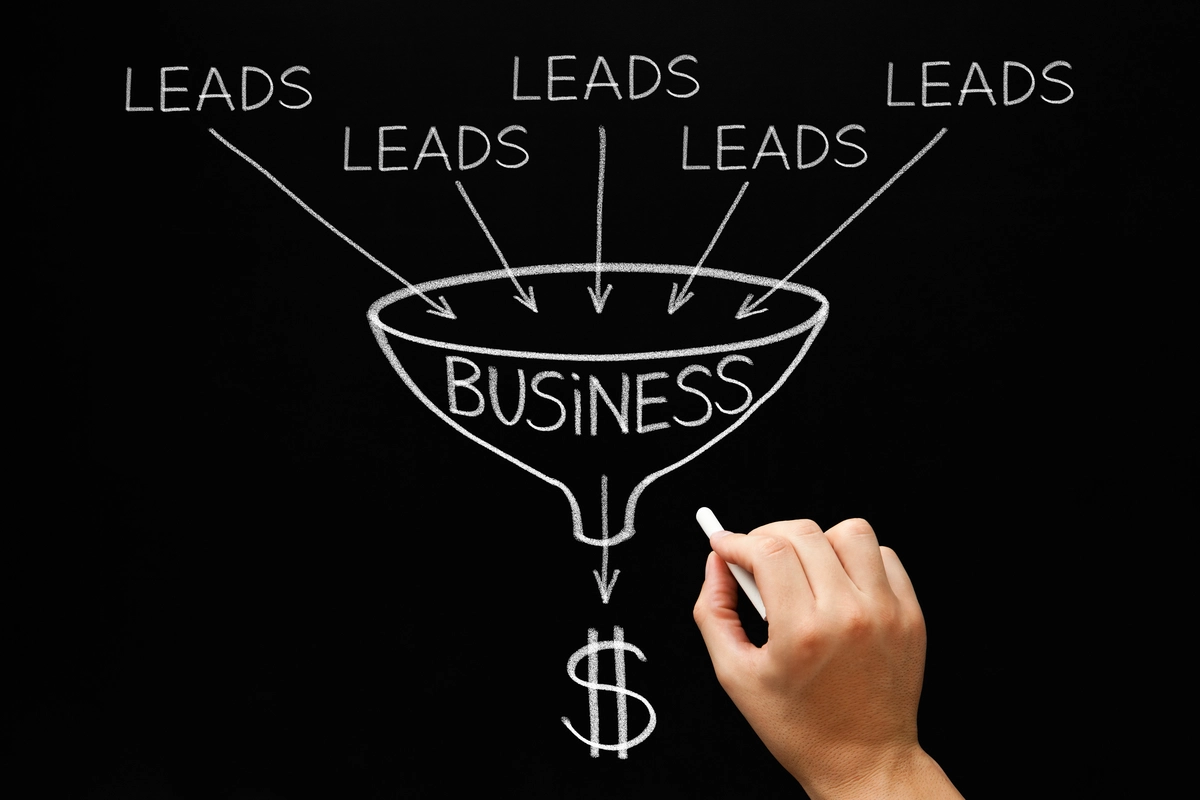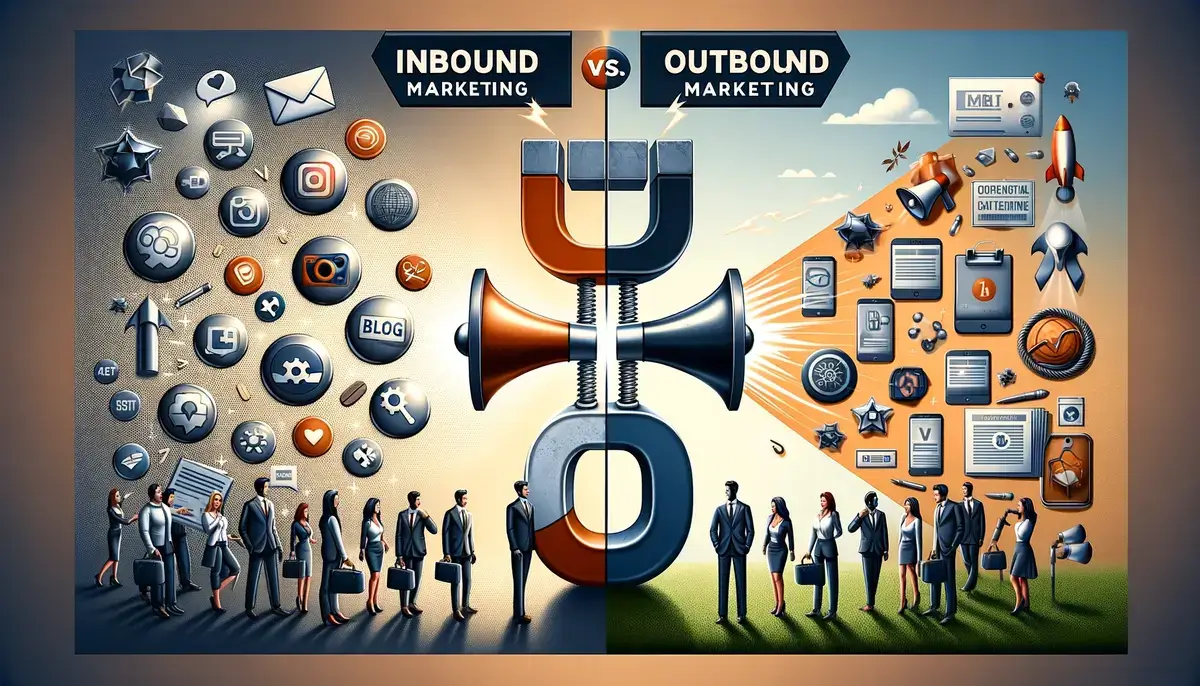Mastering Lead Generation: The Ultimate Guide to Inbound and Online Lead Generation
Lead generation is a critical element for businesses seeking to grow their customer base and increase their sales. In today’s competitive market, mastering lead generation has become essential for sustainable business growth. This comprehensive guide will delve into the fundamental aspects of lead generation, from understanding its significance to exploring strategies for generating and qualifying leads. Whether you are new to lead generation or looking to refine your existing approach, this guide is designed to provide valuable insights and actionable techniques for maximizing your lead generation efforts.
Key Takeaways
- Lead generation is the process of attracting and converting prospects into potential customers. It provides a constant influx of new leads to grow a business’s customer base and increase sales.
- Key metrics like cost per lead, lead quality, and conversion rates should be measured to analyze the effectiveness of lead generation efforts and identify areas for improvement.
- Successful lead generation requires a strategic approach involving identifying the target audience, capturing leads through channels like content marketing and social media, and nurturing leads through the sales funnel.
- An integrated inbound and outbound marketing strategy combines the ability of inbound tactics to attract and nurture leads with the wider reach of outbound tactics.
- Online lead generation encompasses tactics like website optimization, content creation, and email campaigns to engage potential leads digitally. Lead generation tools and analytics provide enhanced efficiency and valuable insights.
What is Lead Generation and Why is it Important?
Understanding the Basics of Lead Generation
Lead generation is the process of attracting and converting prospects into potential customers who have shown interest in your product or service. It involves capturing the contact information of individuals or businesses who have demonstrated a genuine interest in what your company has to offer. This could be through various means such as filling out a form on a landing page, subscribing to a newsletter, or interacting with your content on social media.
The Significance of Lead Generation for Business Growth
Lead generation is vital for businesses as it provides a constant influx of potential customers, ultimately contributing to the expansion of the customer base. It allows companies to focus their marketing and sales efforts on individuals or organizations who have already displayed an interest in the product or service, increasing the likelihood of conversion. Without an effective lead generation strategy, businesses may struggle to identify and reach their target audience, impacting their overall growth and revenue.
Key Metrics to Measure Lead Generation Success
Measuring the effectiveness of lead generation efforts is crucial for refining strategies and maximizing ROI. Key metrics such as cost per lead, lead quality, and lead conversion rates provide valuable insights into the performance of lead generation campaigns. By analyzing these metrics, businesses can identify areas for improvement and make informed decisions to enhance their lead generation initiatives.
How to Generate and Qualify Leads
Effective Strategies for Generating Leads
There are various effective strategies for generating leads. Content marketing, for example, involves creating and distributing valuable, relevant content to attract and engage a target audience. Additionally, utilizing lead capture forms on landing pages and leveraging social media platforms can also be effective in capturing leads.
The Lead Generation Process Explained
The lead generation process typically involves identifying the target audience, capturing leads through various channels, and nurturing these leads to move them through the sales funnel. This process requires a combination of strategic planning, compelling content, and efficient lead capture and management systems.
Qualifying Leads to Identify Potential Customers
Qualifying leads is an essential step in the lead generation process. It involves assessing the level of interest and the likelihood of a lead making a purchase. Lead scoring, for instance, enables businesses to prioritize leads based on their potential to convert into customers, empowering the sales team to focus on the most promising prospects.
Types of Leads and Lead Generation Campaigns
Exploring Different Types of Leads
Leads can vary in terms of their level of interest and readiness to make a purchase. Marketing-qualified leads and product-qualified leads are examples of leads that have been deemed more likely to convert into customers based on their engagement with the company’s marketing efforts or their interest in a specific product or service.
Designing Successful Lead Generation Campaigns
Successful lead generation campaigns are carefully designed to resonate with the target audience and compel them to take action. This involves creating compelling offers, utilizing persuasive call-to-actions, and implementing lead capture forms that gather relevant information while minimizing friction for the prospect.
Utilizing Funnel Strategies to Capture and Nurture Leads
The use of funnel strategies is instrumental in guiding leads through the various stages of the buyer’s journey. By understanding the needs and behaviours of leads at different stages, businesses can tailor their content and communications to effectively nurture leads and drive them towards making a purchase.
Inbound vs. Outbound Marketing for Lead Generation
Understanding Inbound Marketing and its Role in Lead Generation
Inbound marketing focuses on creating valuable experiences that have a positive impact on individuals and businesses, ultimately attracting and engaging prospects. It involves tactics such as content creation, search engine optimization, and social media marketing to draw potential customers towards the company and its offerings.
Exploring the Benefits and Challenges of Outbound Marketing
Outbound marketing, on the other hand, involves initiating conversations with potential customers through traditional marketing methods such as cold calling, direct mail, and advertising. While outbound marketing can reach a wider audience, it often faces challenges in terms of audience engagement and attracting qualified leads.
Integrating Inbound and Outbound Strategies for Optimal Lead Generation
An integrated approach that combines the strengths of both inbound and outbound marketing can yield optimal results for lead generation. By leveraging inbound strategies to attract and nurture leads, and utilizing outbound tactics to reach out to potential customers, businesses can create a comprehensive lead generation strategy that addresses both the quality and quantity of leads.
The Role of Online Lead Generation and Tools
Exploring Online Lead Generation Tactics and Techniques
Online lead generation encompasses a wide array of tactics, including website optimization, content marketing, and email campaigns, aimed at capturing and converting leads from online channels. These tactics are crucial in reaching and engaging a digital audience and are integral components of modern lead generation efforts.
Utilizing Lead Generation Tools for Enhanced Efficiency
Lead generation tools play a pivotal role in streamlining and optimizing the lead generation process. From lead capture forms and CRM systems to lead scoring and analytics tools, the use of technology enhances efficiency and provides valuable insights for refining lead generation strategies.
Analyzing the Impact of Online Lead Generation on Sales and Marketing
The impact of online lead generation on sales and marketing is significant, as it allows businesses to expand their reach and engage with a global audience. By leveraging online lead generation tactics and tools, companies can effectively increase their customer base and drive revenue growth through the acquisition of qualified leads.
Conclusion
In conclusion, lead generation is a crucial aspect of any business’s marketing strategy. By identifying and attracting potential customers, businesses can increase their sales and grow their customer base. Lead generation requires a targeted and strategic approach, utilizing various channels such as social media marketing, email marketing, and content marketing. Additionally, effective lead generation relies on providing valuable and relevant content to potential leads, nurturing them through the sales funnel, and ultimately converting them into loyal customers.
Businesses must continuously analyze and optimize their lead generation efforts to ensure they are maximizing their ROI and reaching the right audience. It is also important to note that lead generation is an ongoing process, and businesses must consistently adapt and evolve their strategies to meet the ever-changing demands of the market. Overall, lead generation is vital for business success and should be given the necessary attention and resources to drive sustained growth and profitability.
Elevate Your Business to New Heights in Malaysia! 🚀 Unlock the Power of Expert Digital Marketing Services to Transform Your Lead Generation and Skyrocket Sales. Act Now!
 Singapore
Singapore  Singapore
Singapore Malaysia
Malaysia








